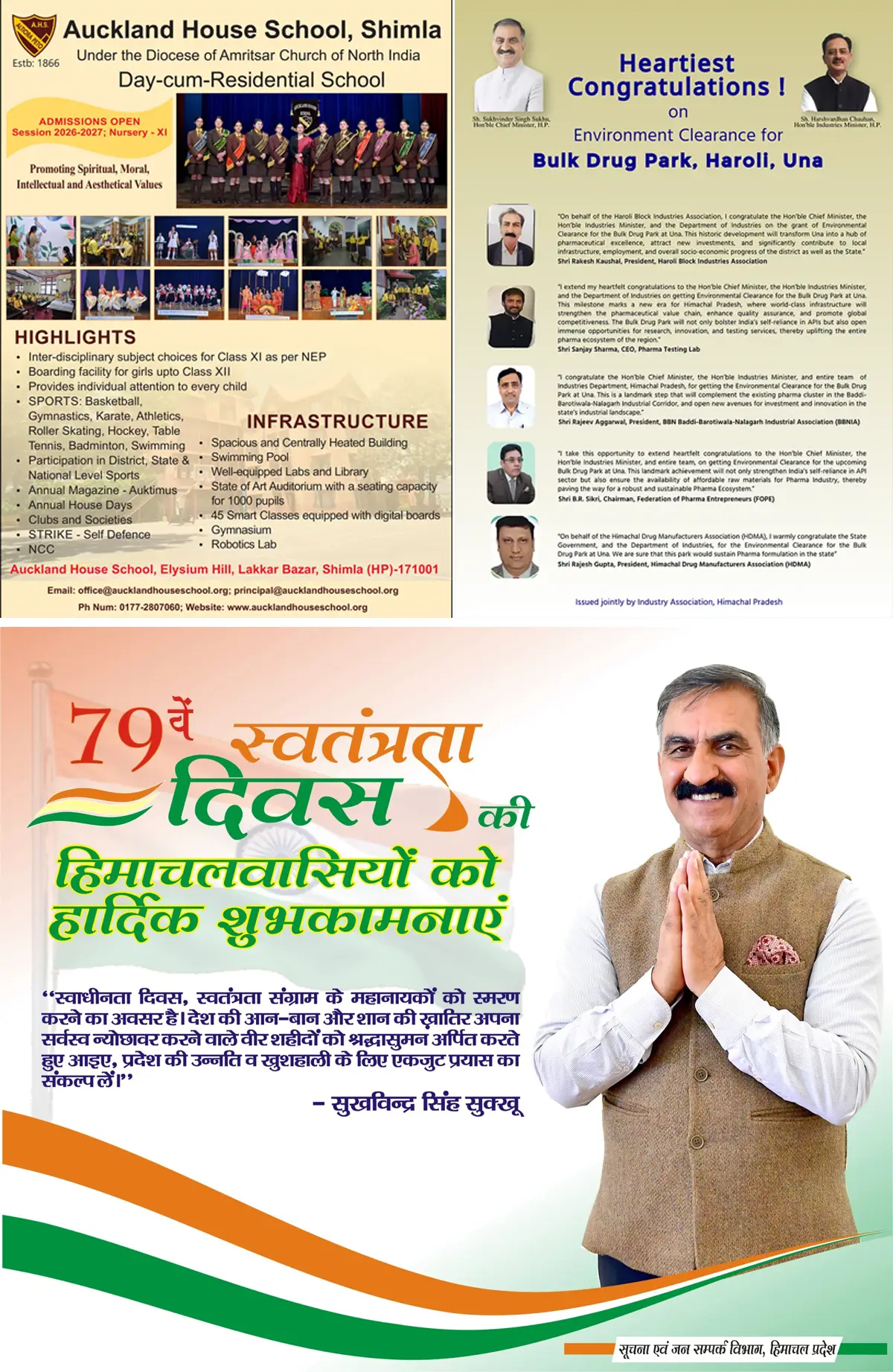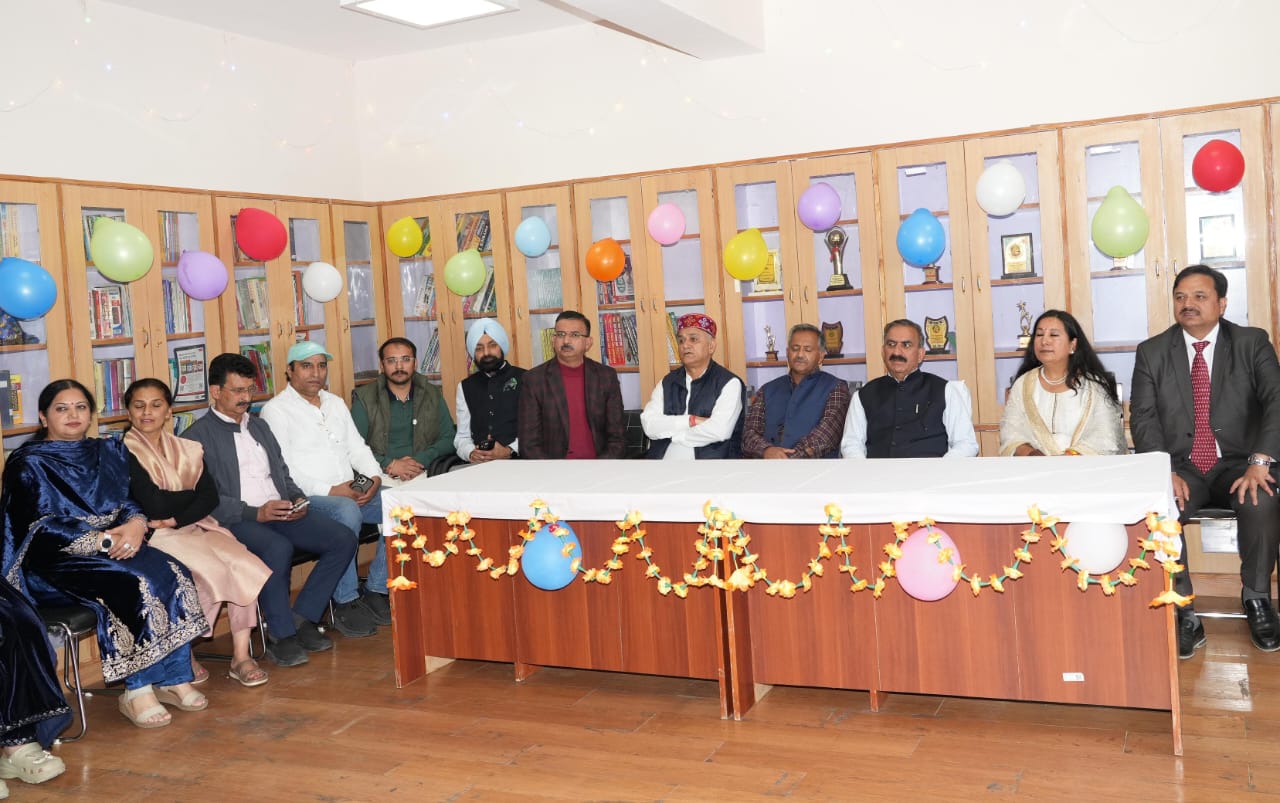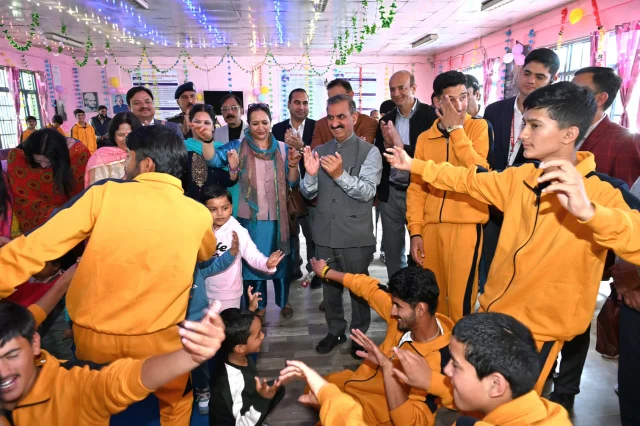Experts stress on adoption of Precision Farming Technologies
2 min read
The two-day National Seminar on Precision Farming Technologies, aimed at enhancing the production and productivity of horticultural and forestry crops, concluded today at Dr. YS Parmar University of Horticulture and Forestry (UHF), Nauni. Experts highlighted the need to adopt precision farming practices to conserve resources and boost productivity.
Organized by the Precision Farming Development Centre (PFDC) of Soil Science and Water Management Department, in collaboration with the Indian Society of Tree Scientists (ISTS), the seminar attracted over 200 participants, including farmers, scientists, researchers and officials from various line departments.
In the valedictory session, Dr. Sanjeev Chauhan, UHF Director of Research emphasized the importance of developing cost-effective technologies for farmers. He urged the identification of niche crops tailored to specific regions and underscored the role of artificial intelligence in precision agriculture. Dr. Inder Dev, Director of Extension, noted that innovation could significantly enhance farmers’ incomes. Seminar Convenor Dr. Uday Sharma, Head of Soil Science and Water Management, expressed that participant feedback would be instrumental in refining future programs.
The seminar featured three technical sessions. Dr. T.B.S. Rajput, former Project Director at IARI, discussed the critical role of water management in agriculture, advocating for increased water use efficiency (WUE) from 40% to 60% by 2047. Dr. Rakesh Sharda from CIPHET highlighted protected cultivation as an effective income-boosting method for small farmers. Dr. Sanjeev Kumar Sandal from CSK HPKV Palampur described suitable polyhouse structures and low-cost drip irrigation systems for hill agriculture. He called for the industry to design more accessible micro-irrigation solutions for small-scale farmers. Dr. D.K. Vatsa, former VC of CSK HPKV Palampur, emphasized the need for lightweight tools for women in agriculture.
In the session on ‘Adoption of Precision Farming Practices in Forestry’, Prof. P.K. Khosla, Founder and Chancellor, Shoolini University, stressed the need for a balance between ecology and economy. Dr. D.K. Khurana advocated for circular economy principles in forestry. Basu Kaushal, Conservator of Forests, Solan, discussed the importance of a policy framework for removing chir pine needles to prevent forest fires. Dr. K.K. Raina raised concerns about rising consumerism and the need for policies to mitigate environmental degradation, recommending investments aligned with ESG criteria.
Dr. Sanjeev Chauhan also highlighted agroforestry’s potential to diversify outputs from limited land, discussing various systems that enhance carbon fixation. Dr. D.R. Bhardwaj reviewed global and national policies for climate change mitigation, emphasizing the significance of engineered wood. Dr. Satish Kumar Bhardwaj advocated for specific Environmental Impact Assessments (EIAs) for the Himalayan ecosystem and the promotion of eco-literacy for sustainable development.
Dr. Nilesh talked about hydroponic systems while Dr. Rohitash discussed the integration of automation, IoT, and artificial intelligence in agriculture. Dr. Santosh Pingle addressed the impacts of climate change and the role of smart technologies in efficient water use and soil health management. The seminar provided valuable insights and fostered collaboration among stakeholders in the field of precision farming.






